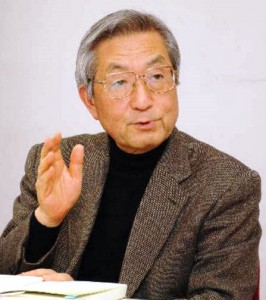When considering the headwaters of the cooperative, it is difficult to compare Japan and Europe, especially Japan and UK. Because the era background is totally different. The Industrial Revolution, which began in around 1760 in UK, has promoted economic and social change. As a result, any farmers or any urban workers had to “work and live” as “wage workers”.
Progress of the industrial revolution began to cause the wage problems and unemployment problem.Therefore workers established cooperatives to ensure the daily necessities such as groceries, and began the activities to protect their own life spontaneously.
However, these cooperatives for “life-defense” could not produce network since they were spontaneous, ended in “isolated experiments”. Cooperative movement during this period is called “Initial cooperative movement”.
These cooperative organizations needed some guidelines to clarify the purpose and philosophy of the movement, so as to constitute and expand the movement unified in wider range based on network.
Robert Owen (1771-1858) showed such guideline. In order to solve the unemployment problem, he showed the way forward of the cooperative movement by developing his own socialism ideology that “new moral world” should be realized by construction of “cooperative community” based on “equal rights and joint consumption, labor, and property”.
Owen ideologists, embracing the cooperatives thought of Owen, practiced again the movement based on advantage of the experience of the initial cooperative movement, so as to ensure funds of construction of cooperative community. They purchased the land by obtained funds and planned construction of cooperatives community having factory, farm, and housing.
The opportunity of big step forward to movement of cooperative based on Owen ideology was “Cooperative Congress”(1831-1835). Especially, the 3rd congress was important in the meaning of preparation of establishment of “The Rochdale Society of Equitable Pioneers”.
At this congress to approve retail store management, the principle of “cash trading” was approved, so that the modern cooperative movement largely advanced. On the evidence, Society of Equitable Pioneers adopted the principle of the “cash trading” from the very beginning.
Society of Equitable Pioneers, organized by workers around the textile factory in 1844, approved “articles of Incorporation” to have principle of the “cash trading” substantially.
The 1st article of The Original Statutes, Laws, and Objectives of Society of Equitable Pioneers submitted famous 6 paragraphs on “The establishment of a store for the sale of provisions and clothings, etc.” Except for the last 6th paragraph on “open of Temperance Hotel”, the contents of paragraph 5 from the first paragraph, “construction of cooperative community”, were the movement that cooperatives had previously been working sooner than Society of Equitable Pioneers.
By the way, how about Japan? For example, shall we look Sontoku Ninomiya? He had lent farmlands he had acquired to neighbours farmers in good condition
It can be said that, while affirming the feudal system in doing so, he had contributed to breaking the feudal system “unconsciously”. In that meaning, it can be said that Yugaku Ohara “tried to break the feudal system consciously”. Based on the system of senzokabu (ancestors shares), he tried to develop local community by creating common land by integrating land and members’ cooperating. Therefore, he must have expected friction between the feudal system.
Now in the 21st century, the first thing that should be considered by cooperative people of Japan is to cherish the interaction between the cooperatives and the local community.
Cooperatives are considered “to contribute to society” by “serving the cooperatives members”.
As a result of that, it means that, cooperatives contribute not only to cooperatves members, but also to other people in the local community and society.
In that meanings, I think that any agricultural cooperatives or any consumption cooperatives must put top priority to encourage local production for local consumption, and to make strong relationship of trust between the people in the local community.
[Profilr] Mr. Yuichiro Nakagawa, Professor of Meiji University
About the history of the cooperative birth, we heard the story of Mr. Yuichiro Nakagawa, Professor of Meiji University.


